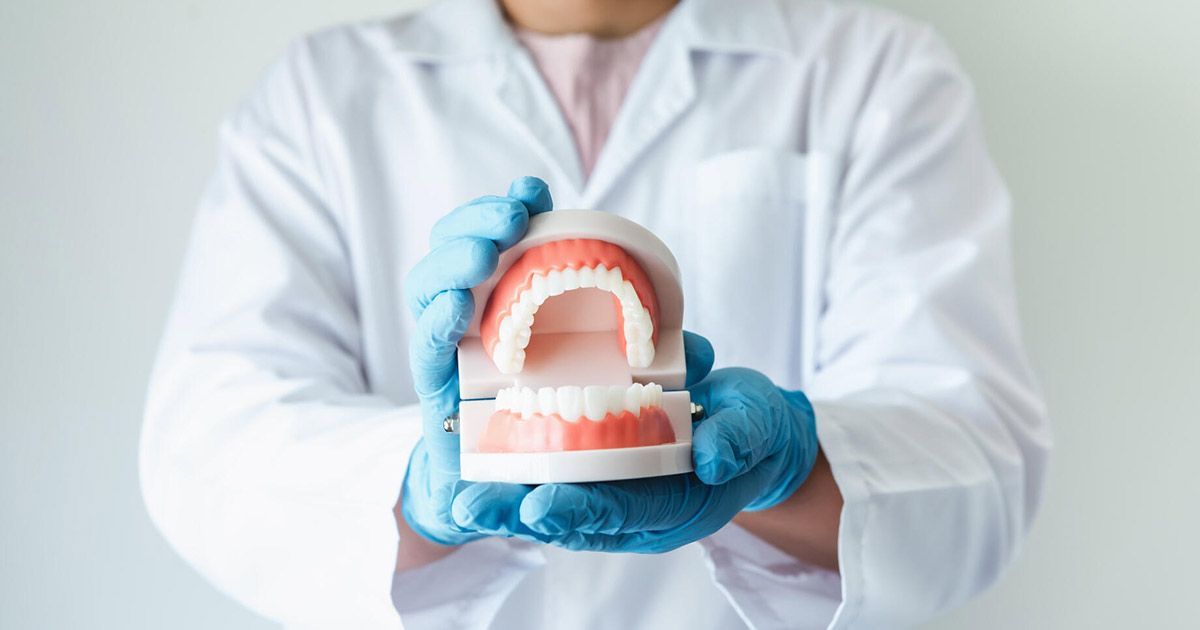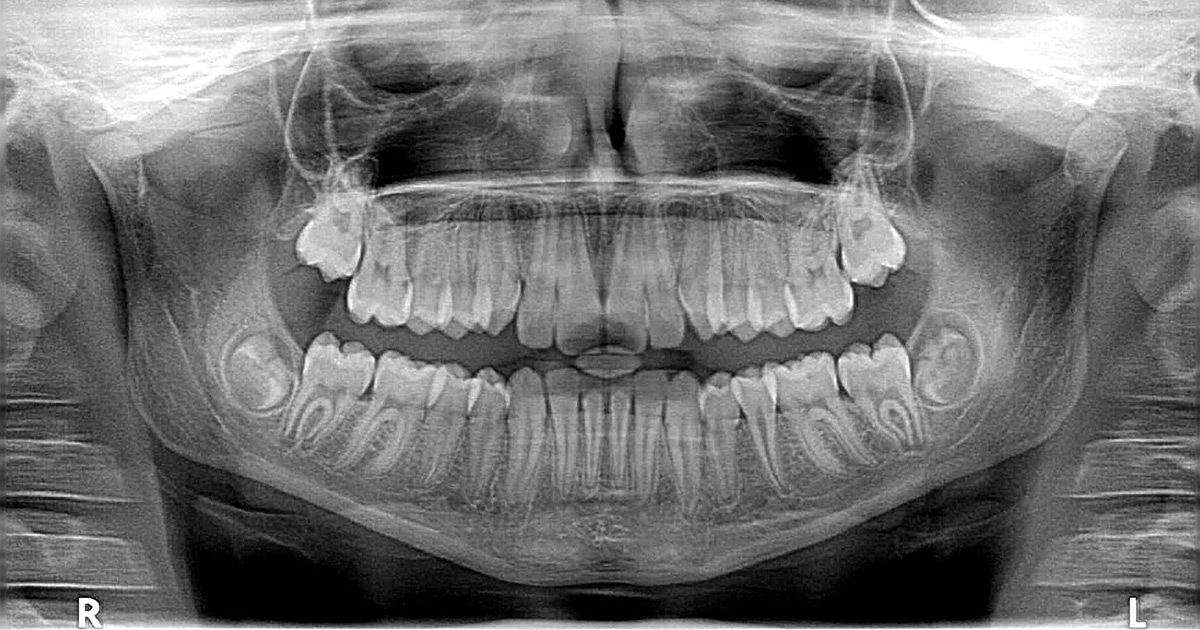What Is Involved in the Process of Deep Cleaning of Teeth?
A standard cleaning may not be enough for some patients and a deeper clean may be needed. Learn about the process involved in the deep cleaning of teeth here.
Did you know that 26% of adults in America have untreated dental decay? Annual deep cleaning of teeth is the key to preventing this type of teeth and gum disease. Unfortunately, many people are scared of going to the dentist. Just the words ‘deep cleaning’ is enough to send some patients off shivering.
Luckily, deep cleaning doesn’t need to be frightening. In this article, we’ll walk you through everything the procedure entails. That way you’ll know exactly what to expect next time you schedule a visit. Let’s get started!
What Is Deep Cleaning of Teeth?
Deep cleaning is different from a regular dental cleaning. This type of procedure goes below the gum line. It does this to clean hard-to-reach spots like the roots and pockets at the base of your tooth. A substance known as tartar can build-up around the exterior and roots of teeth. If left unchecked, then this tartar can cause serious bacterial infections.
As such, dentists use a technique known as periodontal scaling and root planing to remove this substance. If the tartar can’t be removed using manual scraping, then they’ll also use an ultrasonic removal device. This is the main distinction between deep cleaning and regular cleaning. The process of removing tartar can sometimes be quite demanding.
As such, it can last hours and might need to be broken up into multiple sessions. Ultimately, it depends on how bad the case is and how sensitive your teeth are. While a deep cleaning might sound tedious, it’s a vital part of fighting against dangerous infections. If left untreated it can warp into an even worse condition, like a
root canal. So how do you know when a deep cleaning is needed?
When is Deep Cleaning Necessary?
The ADA recommends scheduling dentist appointments for intervals recommended by the dentist. There’s no one set answer for how often you should get a deep cleaning. That’s because every unique case requires a different approach. During these visits, your dentist will recommend whether or not you should get a deep cleaning.
One clear sign of needing deep cleaning is checking for gum disease. You can do this by measuring how far your gums pull away from your teeth. Any pocket that’s more than five millimeters deep will require immediate deep cleaning. Other symptoms of gum disease include things like:
- Swelling gums
- Bleeding gums
- Bruising around the gums
- Pus in the gums
- Bad smelling breath
Gum disease occurs when bacteria get into pockets and roots of the teeth. Certain
types of gum diseases will also require additional treatments. It’s also recommended to get a deep cleaning if it's been more than six months since your appointment with your dental hygienist.
How Does the Procedure Work?
Before the procedure, your dentist will go over your medical history and perform an x-ray. That way, they have a good idea of which areas to focus on. After this preliminary planning stage, the dentist will measure the depths of the gum sockets using a special tool.
This process is also used for probing to determine if the person has gingivitis or periodontitis. After this, the dentist will begin the scaling process. As we mentioned earlier, this is a scraping that removes tartar from the teeth. If needed, an ultrasonic tool is also used. After this, the teeth are polished using a gritty toothpaste.
Then, an air polisher is applied to smooth out the teeth. The dentists may go through final flossing as well. Finally, a fluoride treatment might be used. This process helps remineralize the enamel on your teeth.
Does the Procedure Hurt?
Most of the time, any discomfort associated with the procedure is bearable. However, individuals with particularly deep pockets will be in a lot more pain than others. Similarly, people with sensitive teeth might be incredibly uncomfortable. As such, a dentist will administer a local anesthetic as it’s needed. This will just numb the area around your gum.
How Much Does the Procedure Cost?
The cost of deep teeth cleaning can vary depending on the severity of the case. More gum disease and inflammation will require more work to fully clean. As such, it will be more expensive. You’ll likely have two separate visits, or more if the damage is extensive.
Typically, dentists charge for each quadrant of the mouth that’s deep cleaned. The average cost is usually $100 per quadrant. But this can change depending on where you live. If you have dental insurance, then you should check your plan. Many insurance providers cover deep cleanings.
What to Expect After Deep Cleaning
Typically after the cleaning, you'll experience slight soreness of the gums. As such, you should avoid hot, crunchy, hard, acidic, and sticky foods. We also recommend brushing with toothpaste for sensitive teeth.
You might notice some bleeding when you first start brushing, but this shouldn't last long. If you can help it, try to avoid brushing the affected area. Also, you should wait one week to floss so you don't agitate the gums. If you notice swelling, then try washing with a saltwater solution.
Ready to Schedule Your Deep Cleaning? Contact Sparkle Dental
We hope this article helped you learn more about what happens when you schedule a deep cleaning of teeth. As you can see, there is little to worry about when it comes to this type of procedure. All you need is a dental practitioner that you can trust. So how do you find one? If you live in Mt. Vernon, Yonkers, or New Rochelle area of New York, then look no further than Sparkle Dental.
Here at Sparkle Dental, we believe that a great smile begins with proper tooth and gum health. That’s why we emphasize regular deep cleaning for people with potential cavities or gum diseases. Ready to schedule your appointment? Contact us today so we can begin improving your oral health as soon as possible.
Dr. Rohit Z Patel
D.D.S
After graduating at the top of his class, Dr. Patel continued his postgraduate studies in endodontics at Columbia University College of Dental Medicine in New York. He was appointed to assistant clinical professor of dentistry at Columbia University and later moved on to teach at the Montefiore Medical Center’s Department of Dentistry. Westchester Magazine recognized Dr. Patel as a “Top Dentist for 2012.”
Dr. Yung Kim
D.D.S
Dr. Yung Kim is a double board certified Periodontist and board certified Prosthodontist, educated to treat many extremely complex disorders involving gum disease, tooth decay, and oral pathology. His focus is on full-mouth, complex, surgical, and reconstructive dentistry. He has extensive knowledge of implant dentistry and advanced surgical procedures, specializing in teeth in a day and All-on-Four implants. He is also Invisalign certified and experienced with CAD/CAM restorations and dentures.
Dr. Santvana Vyas
D.D.S
Dr Vyas attended NYU College of Dentistry and earned DDS in 2016 at the top of her class. She was inducted into Omicron Kappa Upsilon (OKU), the national dental honor society and earned Outstanding Achievement Award in study of Prosthodontics.
Dr Vyas is an active member of American College of Prosthodontics (ACP) and American Dental Association (ADA). She is appointed as a Clinical Assistant Professor at NYU College of Dentistry. She is married and is blessed with two sons.
Dr. Gianna DeMase
D.D.S
Dr. DeMase received her undergraduate degree from Binghamton University where she double-majored in Biology and Spanish. She then earned her Doctor of Dental Surgery from New York University College of Dentistry where she graduated with honors in periodontics. After dental school, Dr. DeMase completed a General Practice Residency at Jacobi Medical Center, a level one trauma hospital. Here, she participated in community outreach in the women’s health clinic and taught medical students how to do oral exams. She also worked with special needs patients in Jacobi’s Rose F. Kennedy Center. Dr. DeMase remains committed to being active in the community.
Read More
Dr. DeMase has experience in cavity restoration, endodontics, oral surgery, oral pathology, and prosthodontics including implant restorations.
She highly values patient education and always ensures your comfort and understanding of the treatment. She strongly believes in patient centered care and therefore tailors each treatment plan to you and your needs. As a member of the American Dental Association, Dr. DeMase is always aware of the latest studies and developments in the dental field and strives to apply them to her practice. In her spare time, she can usually be found with a book in her hands.

















